- Home Page
- Company Profile
-
Our Products
- Fiberglass and Insulation Sleeves
- Fire Resistant Sleeve
- Insulation Sleeves
- Polyester Expandable Braided Sleeves
- SRBP Tubes
- Polyurethane Fiberglass Sleeves 1.5 kv
- Acrylic Fiberglass Sleeving
- Varnished Fiberglass Sleeve F Class
- Fire Sleeves
- Polyurethane Fiberglass Sleeve
- PVC Coated Fiberglass Sleeve
- Silicone Coated Fiberglass Sleeve
- Polyurethane Coated Fiberglass Sleeves
- Fiberglass Sleeve ( China Sleeve )
- Fiberglass Sleeving B Class
- Nomex Paper and Electrical Insulation Papers
- Electrical Insulating Paper
- Eurotherm Laminated Nomex Paper NPN
- Pure Aramid Paper
- Laminated Fleece Paper
- Laminated Aramid Paper
- Saturated Fleece Paper
- DuPont Nomex Paper
- Saturated Fleece Paper
- Insulating Kraft Paper
- Insulation Pressboard
- Laminated Nomex
- Electrical Insulation Papers and Laminates
- Pure Aramid (Nomex) Paper
- Laminated Fleece
- Black Kraft Paper
- Amotforse Brown Kraft Paper
- Diamond dotted Paper
- Fiberglass and Insulated Cables
- Glass Epoxy Sheets and Wedges
- Varnishes and Thinners
- Electrical Insulation Tapes
- Electrical Insulation Sheets and Fabrics
- PTFE Wire
- Silicon Cable
- Insulation Film
- Fiberglass and Insulation Sleeves
- Certificates
- Contact Us
Aramid Tape
12.0 INR
Product Details:
- Length 10 m / 25 m / 50 m / 100 m (as per requirement) Meter (m)
- Finish Type Smooth, High-Temperature Resistant
- Closure Non-Adhesive (requires wrapping, tying, or impregnation)
- Water Resistant YES
- Color Natural Yellowish / Light Brown (Aramid Shade)
- Eco Friendly YES
- Shelf Life 5+ years with proper storage Years
- Click to view more
X
Aramid Tape Price and Quantity
- 1 Piece
- 12.0 INR
Aramid Tape Specification
- YES
- Natural Yellowish / Light Brown (Aramid Shade)
- Not Applicable (non-adhesive) Newtons per Millimetre Squared (N/mm2)
- YES
- 5+ years with proper storage Years
- 10 m / 25 m / 50 m / 100 m (as per requirement) Meter (m)
- BOPP
- Electrical insulation for motors, transformers, generators Slot liner and inter-turn insulation High-temperature insulation for batteries, EVs, aerospace Reinforcement for laminates & composites
- 0.10 mm 0.40 mm Millimeter (mm)
- Non-Adhesive
- Aramid Paper Tape (Insulation Tape)
- < 3% (very low)
- Pressure Sensitive
- High tensile strength (tear resistant) Kilograms (kg)
- 0.10 mm 0.40 mm (customizable)
- 10 m / 25 m / 50 m / 100 m (as per requirement) Meter (m)
- 10 mm 100 mm (standard) Millimeter (mm)
- Smooth, High-Temperature Resistant
- 0.10 mm 0.40 mm Millimeter (mm)
- Non-Adhesive (requires wrapping, tying, or impregnation)
- Single Side
Aramid Tape Trade Information
- 1000 Piece Per Month
- 3 Days
Product Description
Aramid tape is a type of tape made from aramid fibers, which are high-performance synthetic fibers known for their exceptional strength, heat resistance, and flame resistance. Aramid fibers are often used in applications where traditional materials like nylon or polyester may not be suitable due to their limitations. One of the most well-known aramid fibers is Kevlar, which is produced by DuPont and is commonly associated with bulletproof vests and other protective gear.
Aramid tape has several important characteristics and uses:
1. Strength: Aramid fibers are incredibly strong, even when compared to steel on a weight-for-weight basis. This makes aramid tape an excellent choice for applications that require high tensile strength.
2. Heat Resistance: Aramid fibers have excellent heat resistance, retaining their strength and integrity at high temperatures. This makes aramid tape suitable for use in applications involving extreme heat.
3. Flame Resistance: Aramid fibers are inherently flame-resistant and do not melt or drip when exposed to flames. This property makes aramid tape ideal for use in fire-resistant and protective applications.
4. Electrical Insulation: Aramid tape is also a good electrical insulator, which makes it suitable for use in electrical and electronic applications.
5. Abrasion Resistance: Aramid tape is highly abrasion-resistant, making it suitable for applications that involve friction and wear.
Aramid tape is commonly used in various industries, including aerospace, automotive, construction, and electronics. It can be applied for reinforcing and repairing materials, providing thermal insulation, and serving as a strong and durable binding material in various applications.
Overall, aramid tape is valued for its exceptional combination of strength, heat resistance, flame resistance, and other desirable properties, making it a versatile material for a range of demanding applications.
FAQ of Aramid Tape:
Q. What is aramid tape?
Ans: Aramid tape is a type of tape made from aramid fibers, such as Kevlar. Aramid fibers are known for their exceptional strength, heat resistance, and flame resistance, making aramid tape suitable for various applications.
Q. What are the key properties of aramid tape?
Ans: The key properties of aramid tape include high tensile strength, heat resistance, flame resistance, electrical insulation, and abrasion resistance.
Q. What are the common uses of aramid tape?
Ans: Aramid tape is used in a wide range of applications, including reinforcing and repairing materials, providing thermal insulation, serving as a binding material, and as a component in protective gear, aerospace components, automotive parts, and more.
Q. Is aramid tape heat resistant?
Ans: Yes, aramid tape is heat-resistant and can withstand high temperatures without losing its strength or integrity. This property makes it suitable for use in applications involving extreme heat.
Q. Is aramid tape flame-resistant?
Ans: Aramid tape is inherently flame-resistant and does not melt or drip when exposed to flames. This makes it ideal for use in fire-resistant applications and protective gear.
Q. Is aramid tape suitable for electrical applications?
Ans: Yes, aramid tape is a good electrical insulator, making it suitable for use in electrical and electronic applications.
Q. Can aramid tape be used for reinforcing materials?
Ans: Yes, aramid tape is often used for reinforcing and repairing materials, such as composites, plastics, and fabrics. It can enhance the strength and durability of these materials.
Q. What industries commonly use aramid tape?
Ans: Aramid tape finds applications in various industries, including aerospace, automotive, construction, electronics, and defense, among others.
Q. How is aramid tape different from other types of tape?
Ans: Aramid tape stands out due to its exceptional strength, heat resistance, and flame resistance. It is often chosen when traditional tapes may not meet the specific requirements of an application.
Q. Can aramid tape be cut and shaped easily?
Ans: Aramid tape can be cut and shaped to fit the needs of a particular application. It is typically available in rolls or sheets and can be readily cut and manipulated with standard tools.
Q. Is aramid tape expensive?
Ans: Aramid tape can be more expensive than some other types of tape due to its unique properties and performance characteristics. The cost may vary based on the brand, quality, and specific application requirements.
Q. Can aramid tape be used in combination with other materials?
Ans: Yes, aramid tape can be used in combination with other materials to create composite structures or reinforced components with enhanced properties. It is often used in conjunction with resins and other reinforcing materials.
Reliable High-Temperature Insulation
Aramid tape excels in environments demanding heat resistance, making it suitable for electrical insulation in motors, generators, transformers, as well as high-temp battery applications, particularly within the EV and aerospace sectors. Its heat-treated option further enhances temperature endurance for critical installations.
Eco-Friendly and Durable
Made from robust, eco-friendly Aramid material, this tape delivers long-term stability, with an impressive shelf life of over five years when properly stored. Its high tensile strength and low elongation guarantee lasting performance even under mechanical stress, making it an excellent choice for industrial reinforcement and slot lining tasks.
Versatile Application Formats
Offered in roll form, Aramid tape is available with single-side pressure-sensitive adhesive or as a non-adhesive variant. This flexibility allows the tape to be either wrapped, tied, or used with impregnation methodsadapting to specific project needs for reinforcement, insulation, or composite manufacturing.
FAQs of Aramid Tape:
Q: How is Aramid tape used within electrical and industrial applications?
A: Aramid tape is commonly applied for insulation in motors, transformers, generators, and slot liners as well as inter-turn insulation. Its also used for composite reinforcement and high-temperature battery insulation in EVs and aerospace projects.Q: What benefits does Aramid tape provide over conventional insulation tapes?
A: Compared to traditional tapes, Aramid tape offers higher tensile strength, superior resistance to heat and water, eco-friendly materials, and an extended shelf life, ensuring consistent performance in demanding environments.Q: When should I choose the non-adhesive vs. pressure-sensitive adhesive option?
A: Select the non-adhesive type for applications requiring wrapping, tying, or resin impregnation in reinforcing composites. The pressure-sensitive adhesive variant suits projects needing easy installation for slot liners, inter-turn, or electrical insulation.Q: Where can Aramid tape be effectively applied?
A: Aramid tape is ideal for use in electrical insulation of motors, transformers, generators, slot liners, EV battery assemblies, aerospace applications, and reinforcement for laminates and composites in various industries.Q: What is the recommended process for installing Aramid tape in non-adhesive form?
A: Non-adhesive Aramid tape should be wrapped or tied around the intended part and may require impregnation for composite manufacturing. For insulation tasks, secure the tape mechanically to ensure maximum protection and strength.Q: Are there any environmental advantages to using this tape?
A: Yes, this tape is eco-friendly, with low environmental impact, thanks to its safe production materials. Its long shelf life and mechanical durability reduce waste and replacement frequency over time.Q: What are the customization options available for Aramid tape?
A: Customers can choose tape lengths (10 m to 100 m), widths (10 mm to 100 mm), thickness (0.10 mm to 0.40 mm), natural color shades, and select between adhesive or non-adhesive, heat-treated options based on specific requirements.Tell us about your requirement

Price:
Quantity
Select Unit
- 50
- 100
- 200
- 250
- 500
- 1000+
Additional detail
Mobile number
Email

 Send Email
Send Email 
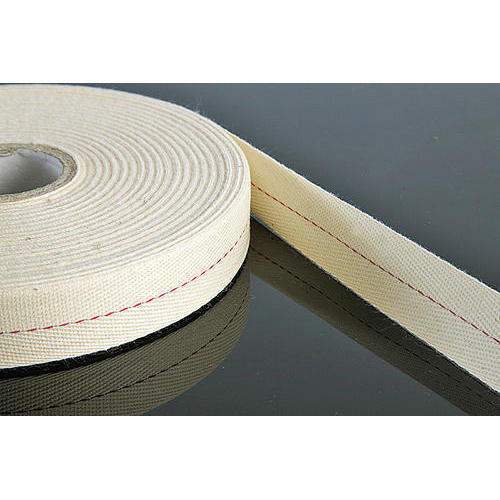
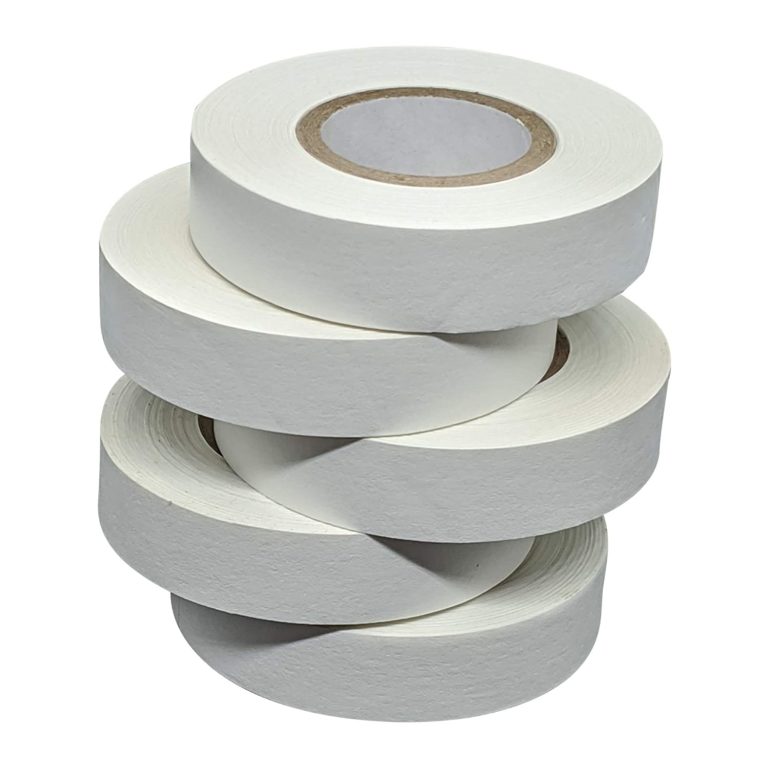
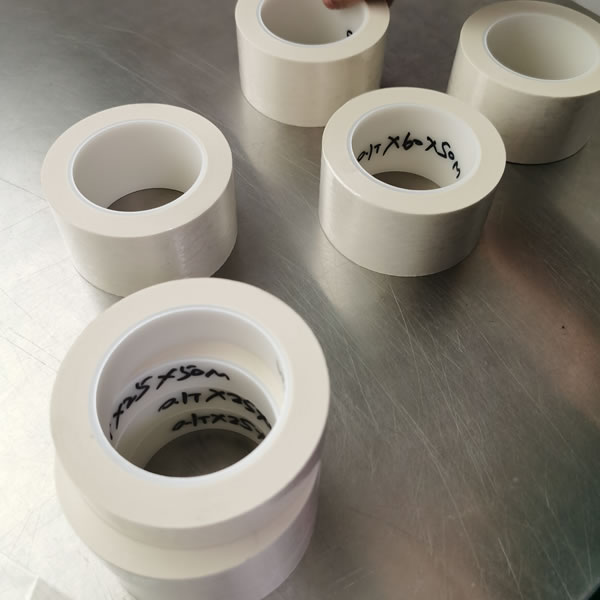
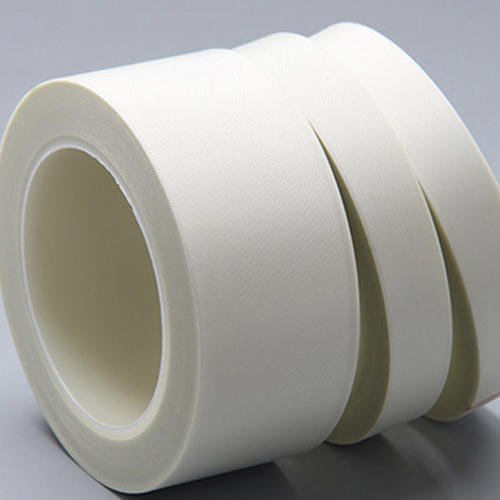







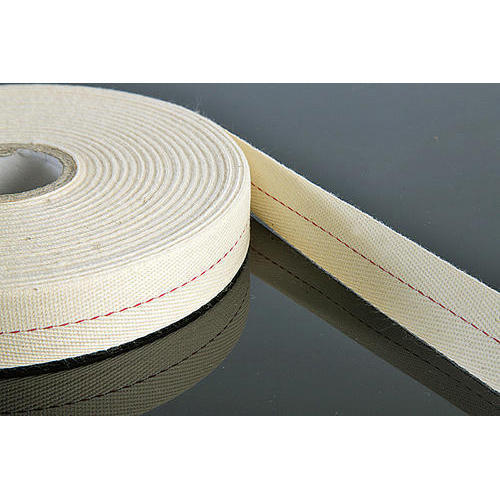
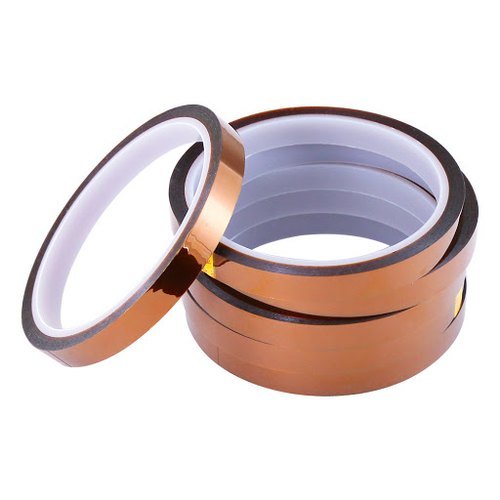

 Send Inquiry
Send Inquiry Send SMS
Send SMS Call Me Free
Call Me Free
 English
English Spanish
Spanish French
French German
German Italian
Italian Chinese (Simplified)
Chinese (Simplified) Japanese
Japanese Korean
Korean Arabic
Arabic Portuguese
Portuguese